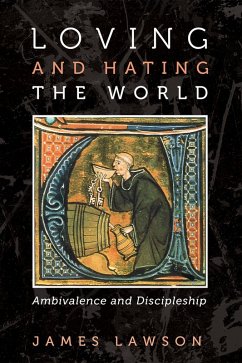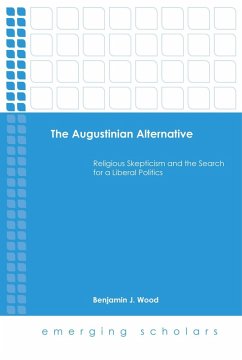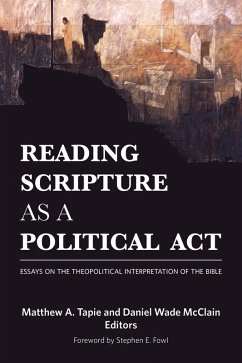
Loving Creation (eBook, ePUB)
The Task of the Moral Life
Versandkostenfrei!
Sofort per Download lieferbar
23,95 €
inkl. MwSt.
Weitere Ausgaben:

PAYBACK Punkte
12 °P sammeln!
Is it true that all we need is love? Does love capture the essence of Christian ethics? Does a love-centered ethic need to be impartial in a way that leaves no room at ground-level for relationships and projects? What is the place of well-being in an ethic of love? Loving Creation: The Task of Moral Life seeks to answer these questions by showing how a love-ethic and an ethic of creation are not at odds but rather reinforce each other.Gary Chartier articulates a love-centered creation ethic--or a creation-centered love-ethic--and applies it to such issues as sex, economic life, love for enemie...
Is it true that all we need is love? Does love capture the essence of Christian ethics? Does a love-centered ethic need to be impartial in a way that leaves no room at ground-level for relationships and projects? What is the place of well-being in an ethic of love? Loving Creation: The Task of Moral Life seeks to answer these questions by showing how a love-ethic and an ethic of creation are not at odds but rather reinforce each other.
Gary Chartier articulates a love-centered creation ethic--or a creation-centered love-ethic--and applies it to such issues as sex, economic life, love for enemies, and political order. In the book, Chartier offers a powerful alternative both to natural-law theories that seem to lose sight of the welfare of actual people and to the accounts of Christian love that embrace an alienating impartiality. He develops an understanding of Christian love as focused on creation that can contribute effectively to enriching both social practices and personal lives.
Loving Creation is unabashedly theological. But the theological considerations it adduces are ones that will allow Christians to engage in the public sphere with adherents of other religious traditions and of none. It is a contribution not only to theological understanding but also to personal moral reflection, to church practice, and to Christian participation in public life.
Gary Chartier articulates a love-centered creation ethic--or a creation-centered love-ethic--and applies it to such issues as sex, economic life, love for enemies, and political order. In the book, Chartier offers a powerful alternative both to natural-law theories that seem to lose sight of the welfare of actual people and to the accounts of Christian love that embrace an alienating impartiality. He develops an understanding of Christian love as focused on creation that can contribute effectively to enriching both social practices and personal lives.
Loving Creation is unabashedly theological. But the theological considerations it adduces are ones that will allow Christians to engage in the public sphere with adherents of other religious traditions and of none. It is a contribution not only to theological understanding but also to personal moral reflection, to church practice, and to Christian participation in public life.
Dieser Download kann aus rechtlichen Gründen nur mit Rechnungsadresse in A, B, BG, CY, CZ, D, DK, EW, E, FIN, F, GR, HR, H, IRL, I, LT, L, LR, M, NL, PL, P, R, S, SLO, SK ausgeliefert werden.













